Sharare Zehtabian
ML-DCN: Masked Low-Rank Deep Crossing Network Towards Scalable Ads Click-through Rate Prediction at Pinterest
Feb 09, 2026Abstract:Deep learning recommendation systems rely on feature interaction modules to model complex user-item relationships across sparse categorical and dense features. In large-scale ad ranking, increasing model capacity is a promising path to improving both predictive performance and business outcomes, yet production serving budgets impose strict constraints on latency and FLOPs. This creates a central tension: we want interaction modules that both scale effectively with additional compute and remain compute-efficient at serving time. In this work, we study how to scale feature interaction modules under a fixed serving budget. We find that naively scaling DCNv2 and MaskNet, despite their widespread adoption in industry, yields rapidly diminishing offline gains in the Pinterest ads ranking system. To overcome aforementioned limitations, we propose ML-DCN, an interaction module that integrates an instance-conditioned mask into a low-rank crossing layer, enabling per-example selection and amplification of salient interaction directions while maintaining efficient computation. This novel architecture combines the strengths of DCNv2 and MaskNet, scales efficiently with increased compute, and achieves state-of-the-art performance. Experiments on a large internal Pinterest ads dataset show that ML-DCN achieves higher AUC than DCNv2, MaskNet, and recent scaling-oriented alternatives at matched FLOPs, and it scales more favorably overall as compute increases, exhibiting a stronger AUC-FLOPs trade-off. Finally, online A/B tests demonstrate statistically significant improvements in key ads metrics (including CTR and click-quality measures) and ML-DCN has been deployed in the production system with neutral serving cost.
Predicting infections in the Covid-19 pandemic -- lessons learned
Dec 02, 2021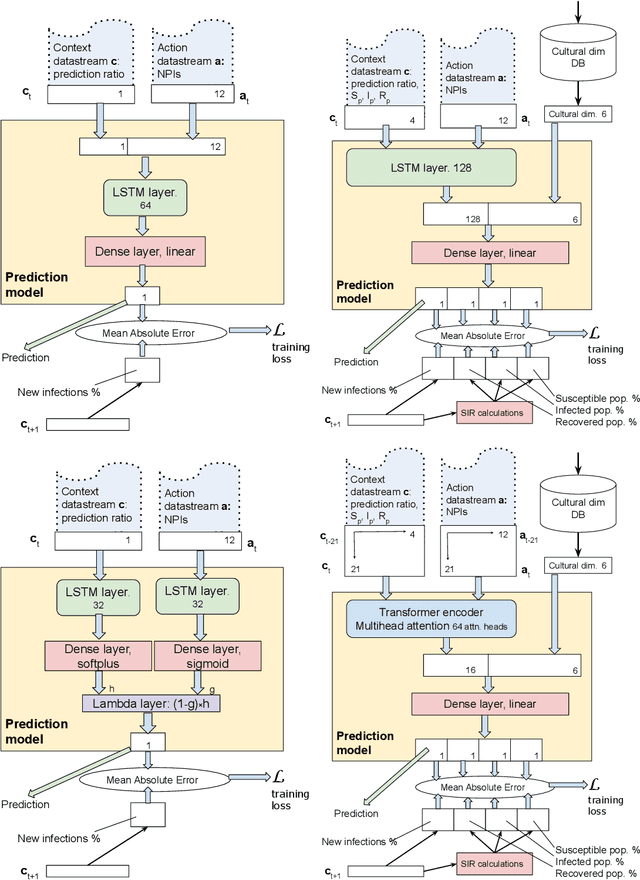
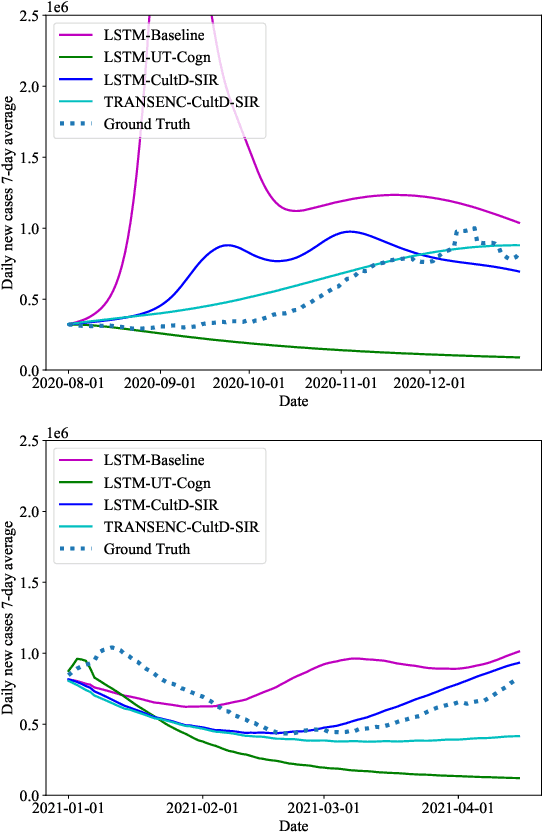
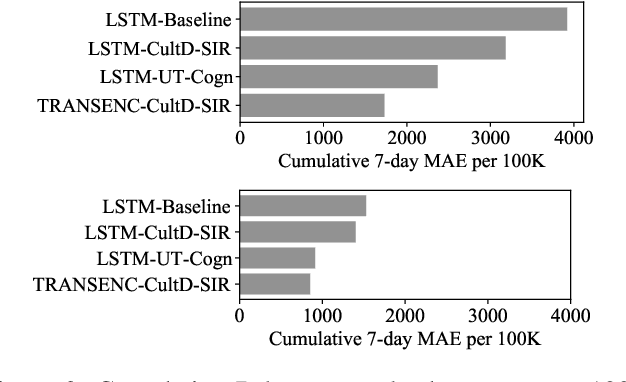
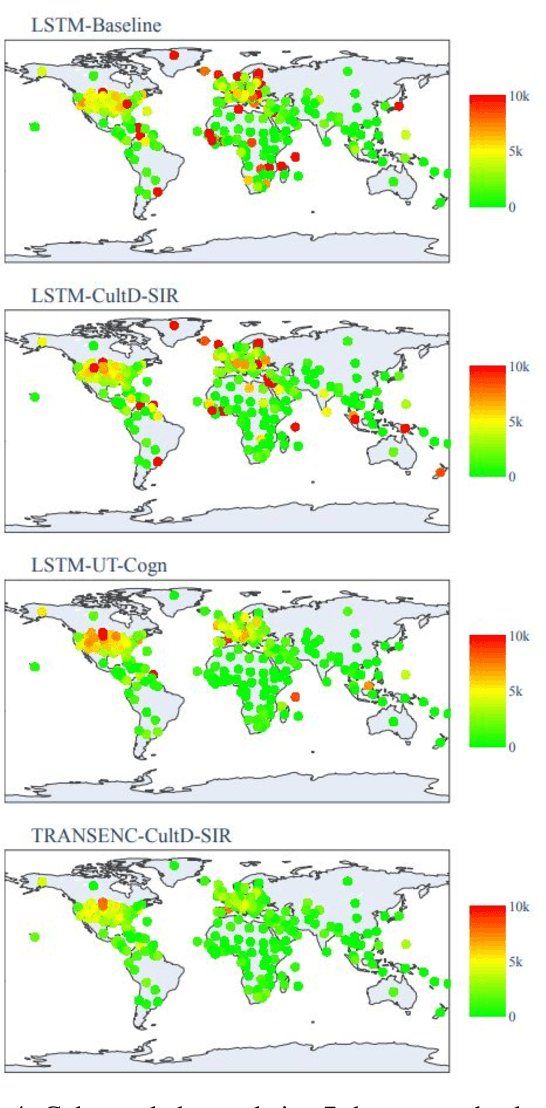
Abstract:Throughout the Covid-19 pandemic, a significant amount of effort had been put into developing techniques that predict the number of infections under various assumptions about the public policy and non-pharmaceutical interventions. While both the available data and the sophistication of the AI models and available computing power exceed what was available in previous years, the overall success of prediction approaches was very limited. In this paper, we start from prediction algorithms proposed for XPrize Pandemic Response Challenge and consider several directions that might allow their improvement. Then, we investigate their performance over medium-term predictions extending over several months. We find that augmenting the algorithms with additional information about the culture of the modeled region, incorporating traditional compartmental models and up-to-date deep learning architectures can improve the performance for short term predictions, the accuracy of medium-term predictions is still very low and a significant amount of future research is needed to make such models a reliable component of a public policy toolbox.
Privacy-Preserving Learning of Human Activity Predictors in Smart Environments
Jan 17, 2021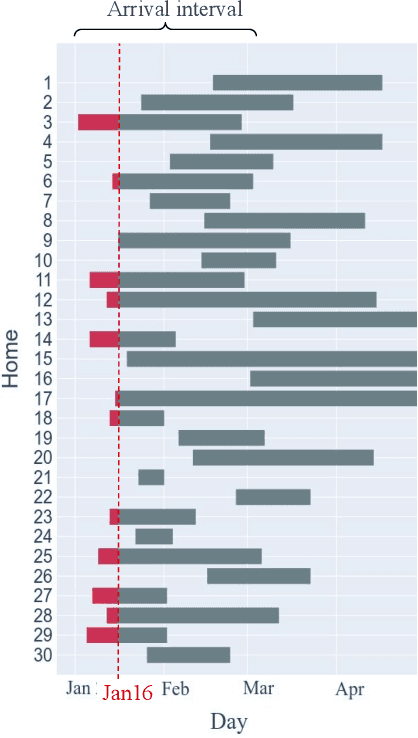
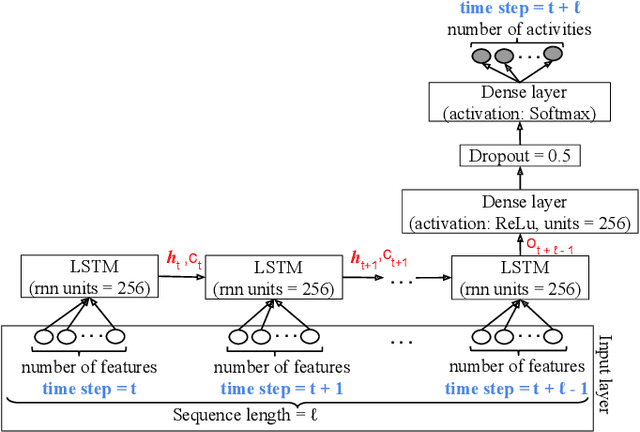

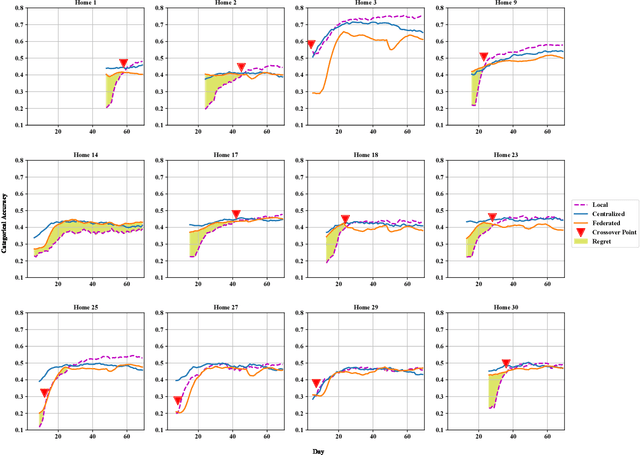
Abstract:The daily activities performed by a disabled or elderly person can be monitored by a smart environment, and the acquired data can be used to learn a predictive model of user behavior. To speed up the learning, several researchers designed collaborative learning systems that use data from multiple users. However, disclosing the daily activities of an elderly or disabled user raises privacy concerns. In this paper, we use state-of-the-art deep neural network-based techniques to learn predictive human activity models in the local, centralized, and federated learning settings. A novel aspect of our work is that we carefully track the temporal evolution of the data available to the learner and the data shared by the user. In contrast to previous work where users shared all their data with the centralized learner, we consider users that aim to preserve their privacy. Thus, they choose between approaches in order to achieve their goals of predictive accuracy while minimizing the shared data. To help users make decisions before disclosing any data, we use machine learning to predict the degree to which a user would benefit from collaborative learning. We validate our approaches on real-world data.
Unsupervised Meta-Learning through Latent-Space Interpolation in Generative Models
Jun 18, 2020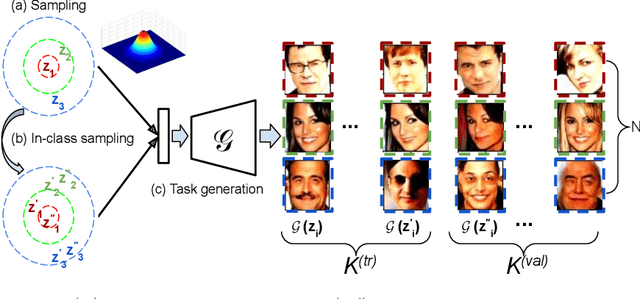


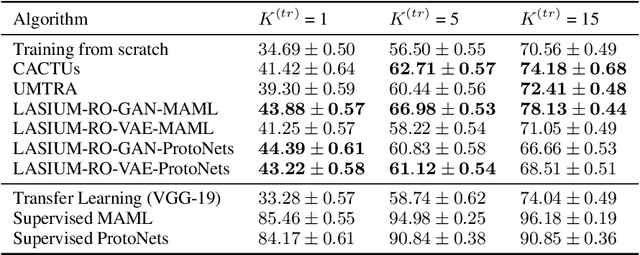
Abstract:Unsupervised meta-learning approaches rely on synthetic meta-tasks that are created using techniques such as random selection, clustering and/or augmentation. Unfortunately, clustering and augmentation are domain-dependent, and thus they require either manual tweaking or expensive learning. In this work, we describe an approach that generates meta-tasks using generative models. A critical component is a novel approach of sampling from the latent space that generates objects grouped into synthetic classes forming the training and validation data of a meta-task. We find that the proposed approach, LAtent Space Interpolation Unsupervised Meta-learning (LASIUM), outperforms or is competitive with current unsupervised learning baselines on few-shot classification tasks on the most widely used benchmark datasets. In addition, the approach promises to be applicable without manual tweaking over a wider range of domains than previous approaches.
 Add to Chrome
Add to Chrome Add to Firefox
Add to Firefox Add to Edge
Add to Edge